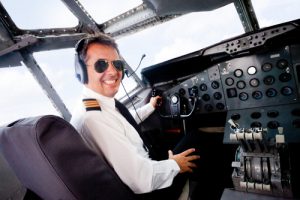
U.S. Sen. John Hoeven (R-ND) on Aug. 1 introduced bipartisan legislation to establish a pilot program that would provide flight training services to America’s military veterans seeking commercial airline pilot positions.
“Commercial aviation is currently facing a real need for qualified pilots and our legislation will help meet that need by connecting veterans with flight training schools like UND,” said Sen. Hoeven, referring to the University of North Dakota in Grand Forks.
Sen. Hoeven is the original cosponsor of the American Aviator Act, S. 3322, which he introduced with U.S. Sen. Tammy Baldwin (D-WI). If enacted, S. 3322 would authorize grants through the Federal Aviation Administration (FAA) to support pilot training for veterans who are not already military pilots.
“Through their service to our country, our veterans cultivate important leadership qualities while fostering a commitment to excellence,” he said, adding that they can “leverage skills they have already learned in the military for a new career in aviation.”
Elizabeth Bjerke, associate dean of the John D. Odegard School of Aerospace Sciences at UND, noted that “the largest barrier to becoming a commercial airline pilot is often the financial cost associated with training.”
S. 3322 would eliminate that barrier, Bjerke said, adding that the federal funds appropriated under the bill would allow UND to “provide flight training to nearly 100 veterans annually.”
“We greatly appreciate Senator Hoeven’s ongoing leadership and support on this important issue,” said Bjerke.
Under S. 3322, institutions of higher learning with established pathways to employment with commercial air carriers would be eligible for federal grants to recruit and enroll veterans for flight training, according to a summary provided by Sen. Hoeven’s office. Allowable uses of grant funds include the provision of guidance and flight-training services, as well as any additional training a student would need to reach proficiency.
The Air Line Pilots Association and the Regional Airline Association support S. 3322, which has been referred for consideration to the U.S. Senate Commerce, Science, and Transportation Committee.



